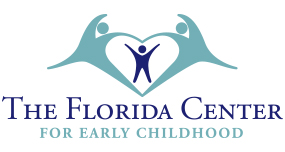Using Trauma-Informed Care to meet the Holistic Needs of Young Children
by Dr. Johnna Brynn, director of training and professional development at The Florida Center Training Institute
 While trauma can have detrimental repercussions at any age, the effects of early childhood trauma can last a lifetime. Early intervention when addressing childhood trauma can provide an excellent opportunity to support the most vulnerable victims and effectively reduce the impact to families and communities in the following years.
While trauma can have detrimental repercussions at any age, the effects of early childhood trauma can last a lifetime. Early intervention when addressing childhood trauma can provide an excellent opportunity to support the most vulnerable victims and effectively reduce the impact to families and communities in the following years.
Any event in a person’s life that causes physical, emotional, spiritual or psychological harm and leaves a victim feeling threatened, frightened or anxious is considered trauma. Young children who experience trauma are particularly at risk because their developing brains are vulnerable. Trauma can affect core functions of brain development such as memory, attention, IQ and social-emotional regulation.
Nearly 35 million children in the U.S. have experienced some sort of trauma, according to a National Survey of Children’s Heath. Even more concerning, a third of these children have experienced one or more types. The more trauma a child experiences, the higher their risk of it having a negative impact on their life.
The Florida Center for Early Childhood takes a trauma-informed care approach to helping children and families. This approach embraces sensitivity to the client’s physical, emotional, and economic needs in consideration of any traumatic experiences. The practice has grown widespread across the U.S. in the past two decades and there has been an increase of national efforts to establish trauma sensitive services and programs.
Some of the evidence-based practices used to help young children exposed to trauma at The Florida Center include multi-generational family counseling, behavioral therapy, trauma-focused therapy and mindfulness-based stress reduction.
The Florida Center is proud to offer trauma-informed approaches to meet the needs of the families we serve, taking into account the developmental, relational, and sensory needs of young children. Infants and preschoolers exposed to trauma are in some ways comparable to children with disabilities due to their developmental limitations. The nature of this population requires a more rigorous and proactive awareness and identification process because these children are physically dependent on surrounding adults. With the comprehensive services at The Florida Center, the caring and skilled counselors, teachers and professionals truly believe there is hope and healing for trauma survivors.


